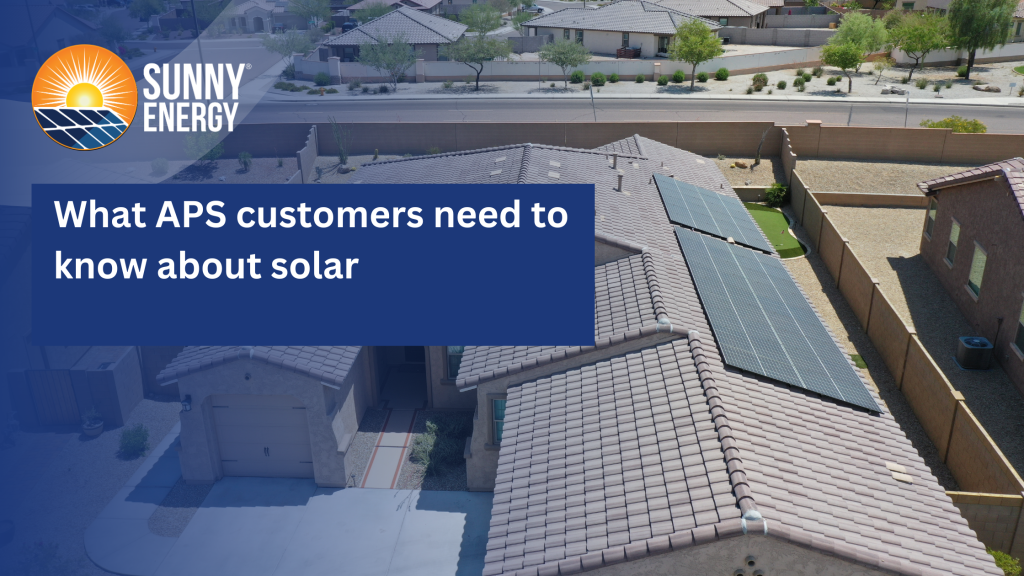The ever-increasing demand for clean and sustainable energy has led many homeowners in Arizona to explore solar power options. Among the considerations for those embracing solar energy are Arizona net metering and a unique net billing program.
In this blog, we’ll delve into the key differences between Arizona net metering and net billing, understanding how the latter works, exploring excess generation credit rates, and evaluating the potential solar savings. Additionally, we’ll explore the role of solar batteries in maximizing savings under Arizona’s net billing program.
Arizona net metering vs Arizona’s net billing
Net metering and net billing are both mechanisms that allow solar panel owners to offset their electricity bills by generating their own solar power. Arizona net metering is a widely adopted practice across the United States, where the excess energy generated by a solar system is fed back into the grid, and homeowners receive credits on their utility bills for the surplus electricity produced. Arizona, however, has adopted a unique approach called net billing for most utility rates. While it shares similarities with net metering, the nuances lie in how excess energy is compensated and credited.
How does Arizona’s net billing program work?
Arizona’s net billing program allows solar system owners to export excess electricity to the grid and receive credits for the surplus. Unlike net metering, where excess energy is credited at the retail rate, Arizona’s net billing compensates homeowners at a predetermined export rate, which is usually lower than the retail rate. This can impact the overall savings potential for solar energy users in the state.
Net metering is available for a few utility rates in Arizona that have demand charges. However, net metering only helps with energy usage, and does not have any effect on demand charges, which can be most of your utility bill. Utility rates with demand charges are a great fit for everyone, but those who understand how they work and how to save with solar and a utility rate with demand charges, can do very well.
Excess generation credit rates
The excess generation credit rate is a critical factor in understanding the financial implications of Arizona’s net billing program. The credit rate is the amount solar system owners receive for each kilowatt-hour (kWh) of excess electricity exported to the grid. The rate is typically set by the utility company or state regulatory body and can vary based on factors such as time of day and demand.
Solar savings with Arizona net billing
While Arizona’s net billing program may offer savings, it’s essential for solar system owners to carefully analyze their energy consumption patterns and the credit rates offered by their utility provider. Despite the potential differences in credit rates, solar power remains a viable and environmentally friendly option for homeowners seeking to reduce their reliance on traditional grid power.
Solar savings will vary at different times of the year
The amount of excess solar energy, and billing credits, you have depends on how much solar energy you produce versus how much you use. Some months, you will see very little excess solar energy, and other months it can be very high. In fact, during the months of March, April and May, solar energy production is at its highest, while most people use very little energy at home. It’s possible to build up billing credits during these spring months, and actually have a few negative utility bills. This then helps pay for higher energy needs during the summer months, when air conditioner use is high.
Will a solar battery help you save more with Arizona’s net billing?
Integrating a solar battery into your solar power system can enhance your savings under Arizona’s net billing program. solar Arizona companies provide installation with solar batteries that allow homeowners to store excess energy generated during the day and use it during periods of low sunlight or high energy demand. This reduces the reliance on grid power during peak times, potentially increasing the overall savings and energy independence. Using the energy stored in your batteries allows you to use it when peak rates can be as much as ten times the rate you would otherwise get paid with net billing.
Conclusion
As Arizona residents increasingly turn to solar power by choosing Arizona solar contractors, understanding the distinctions between net metering and the state’s unique net billing program is crucial. By grasping the intricacies of credit rates and exploring the benefits of solar batteries, homeowners can make informed decisions about adopting solar energy with solar power companies in Arizona and maximizing their savings. The journey to sustainable and cost-effective energy solutions requires careful consideration, but with the right knowledge and selection of Arizona solar company, residents can harness the power of the sun to not only reduce their environmental impact but also enjoy long-term financial benefits.
Sunny Energy is a reputable solar installer and the best solar company in Arizona that understands the concept of Arizona net metering and net billing well and their experienced professionals can guide you in choosing the best method. Reach out to us today and book your consultation with one of the best Arizona solar companies.






